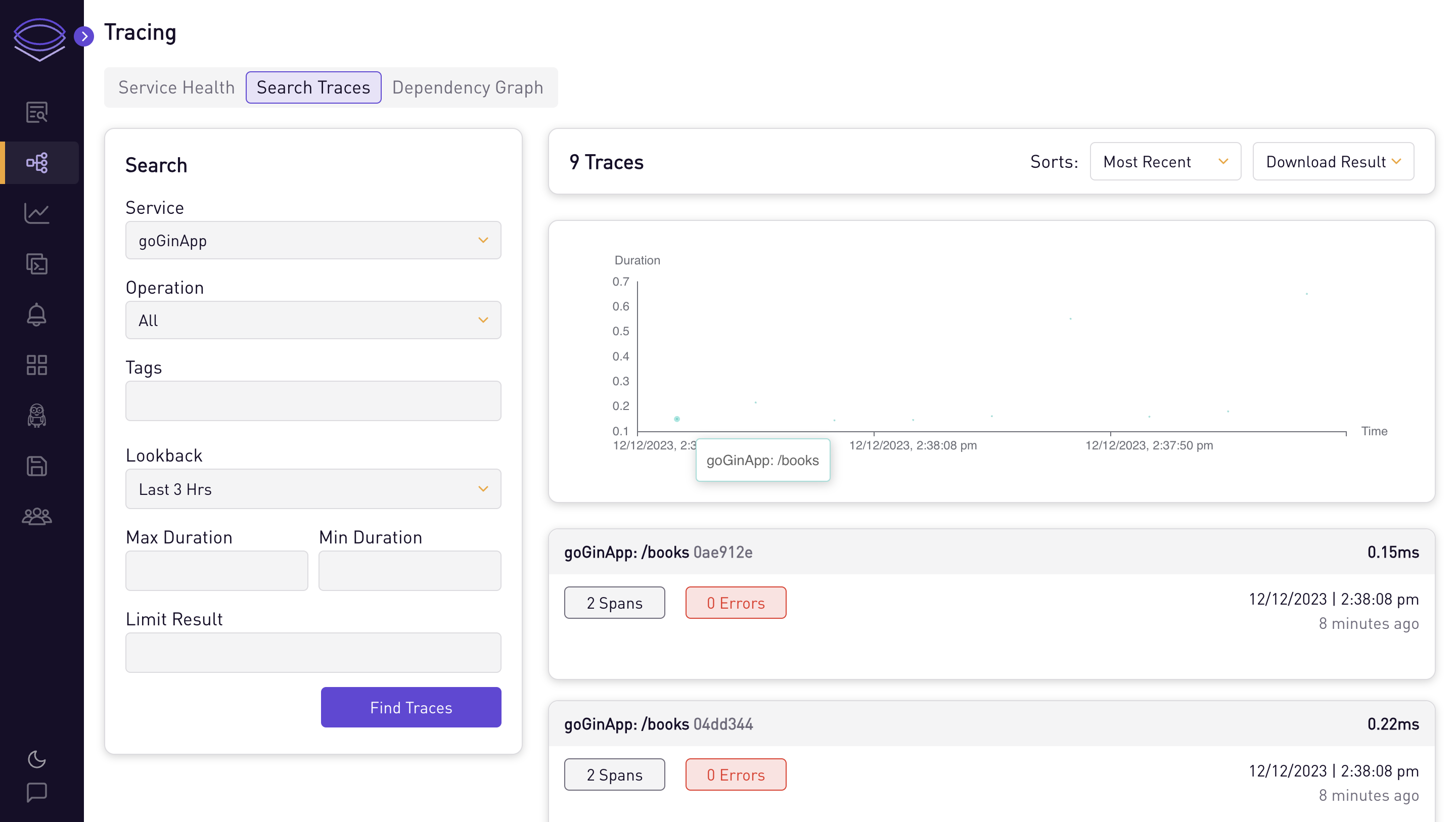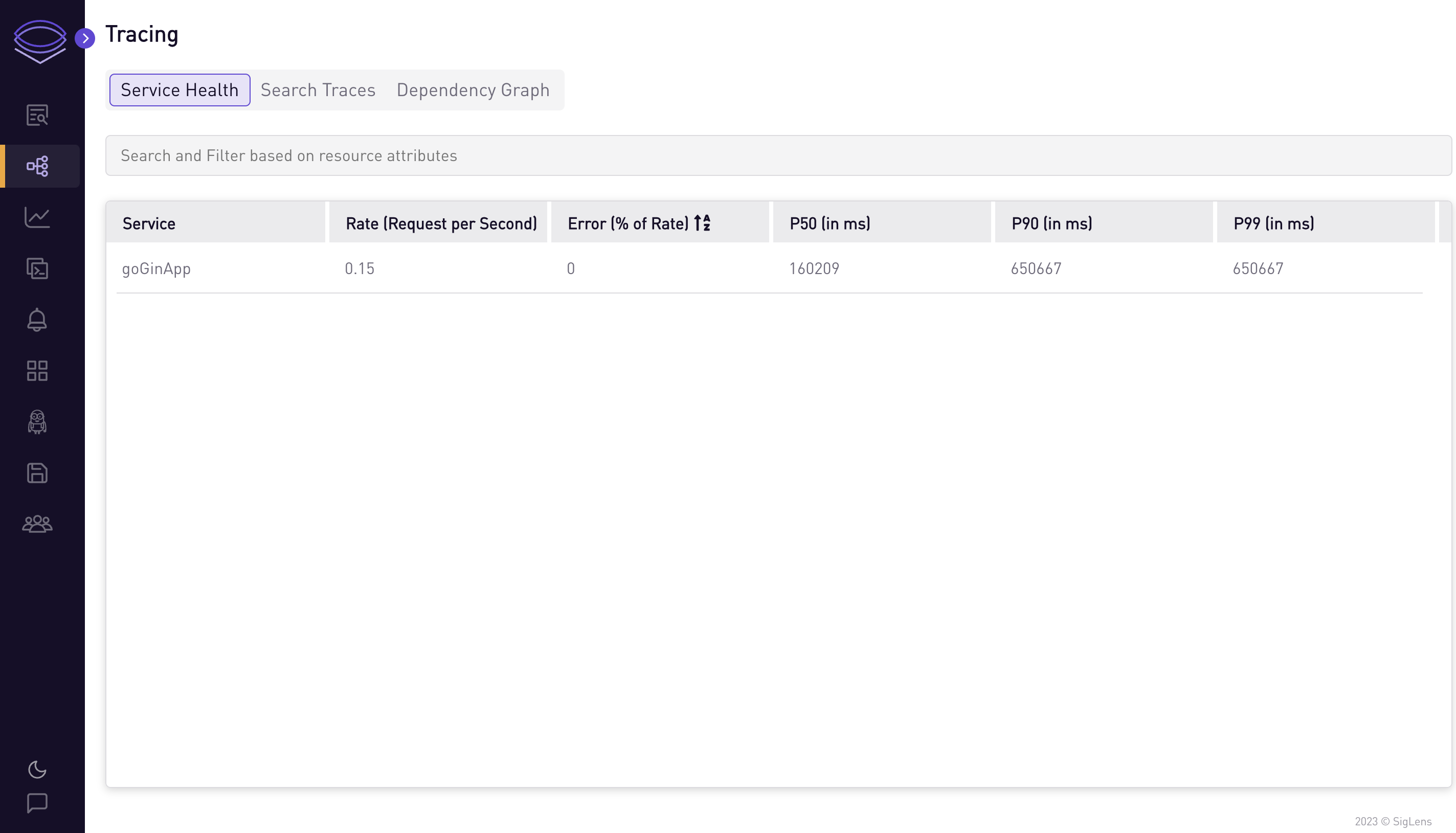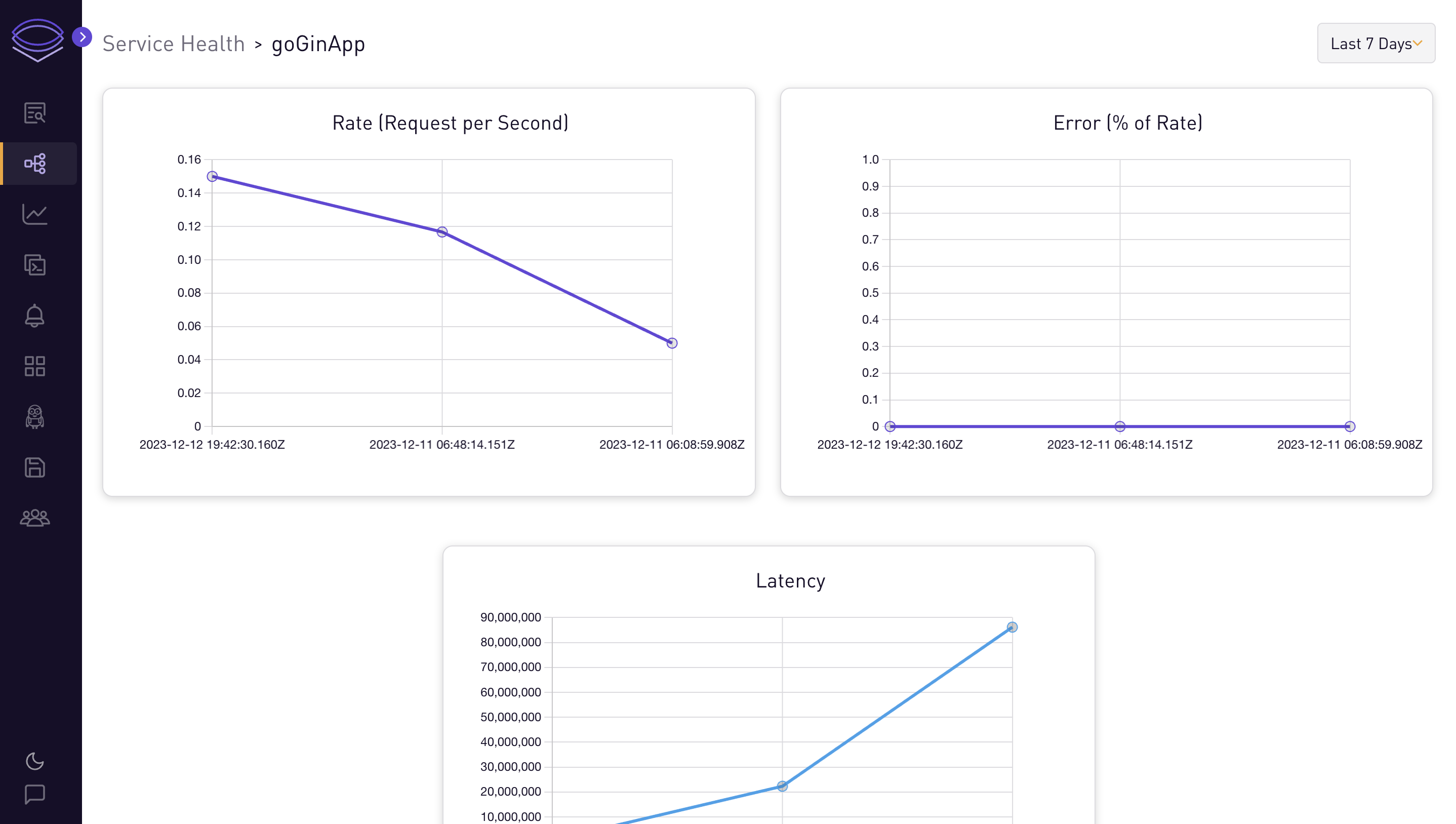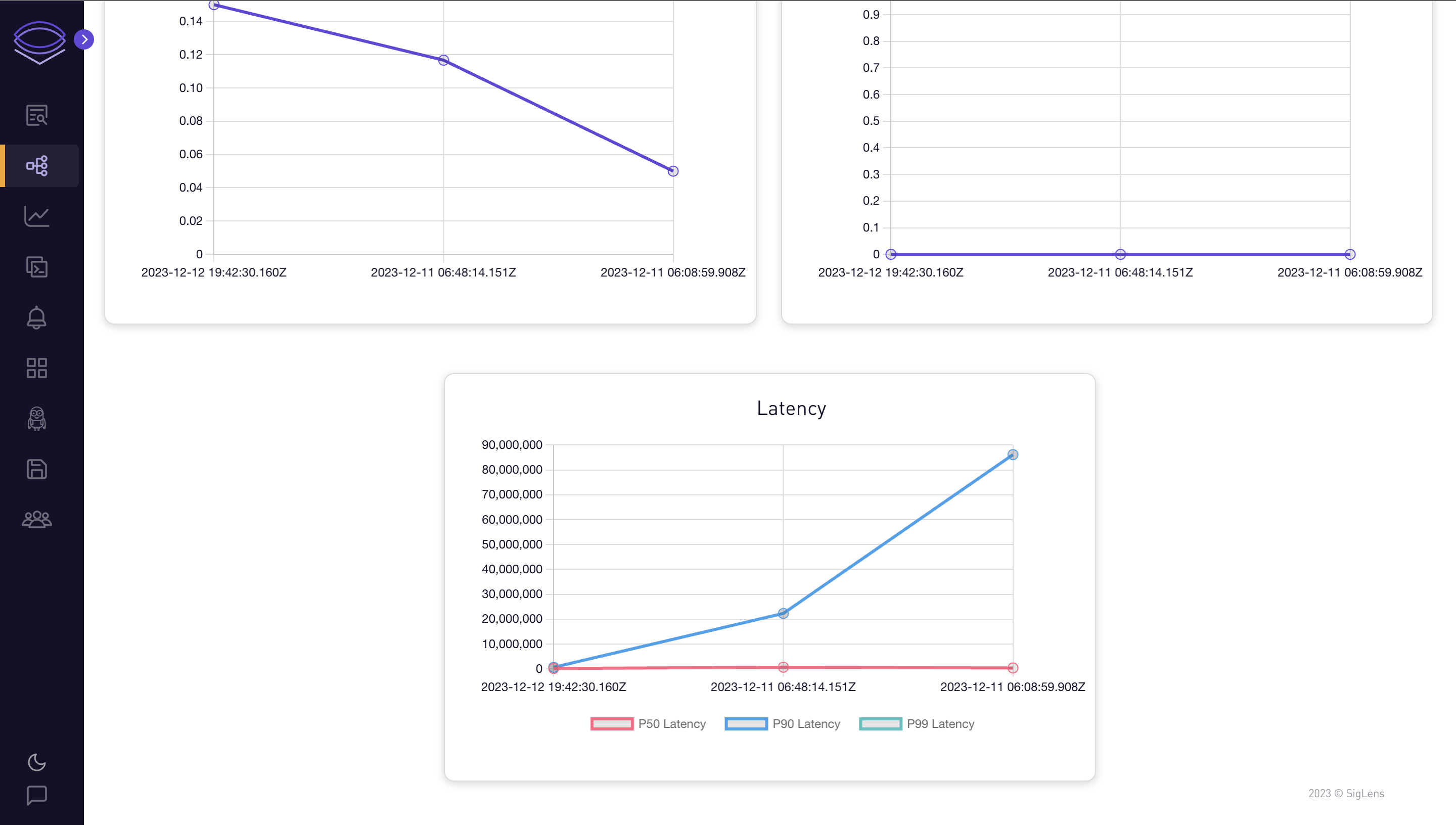Go App
Auto-instrument sample Golang app for traces
In this tutorial, we will go through the steps to auto-instrument a Go app to send traces to SigLens.
Quickstart
Start SigLens:
curl -L https://siglens.com/install.sh | sh
Start a Go app in a separate terminal:
git clone https://github.com/siglens/bookstore-app.git
cd bookstore-app
SERVICE_NAME=my-service OTEL_EXPORTER_OTLP_ENDPOINT=http://localhost:8081/otlp go run main.go
Go to the bookstore app at http://localhost:8090/books and refresh the page a few times (you should see {"data":[]}) to send traces to SigLens.
After about 10 seconds, you should see the traces on SigLens on http://localhost:5122 then going to Tracing -> Search Traces and clicking the Find Traces button.
More Details
Instrumenting your existing Go app to send traces to SigLens requires a few extra steps becasue OpenTelemetry doesn't yet have full auto-instrumentation for Go.
Let's say you have an app that uses the Gin framework.
Here's how you would use the otelgin package to instrument the gin calls:
- In your
main.go, update your imports section:
import (
// Existing imports ...
"go.opentelemetry.io/contrib/instrumentation/github.com/gin-gonic/gin/otelgin"
"go.opentelemetry.io/otel"
"go.opentelemetry.io/otel/attribute"
"go.opentelemetry.io/otel/exporters/otlp/otlptrace"
"go.opentelemetry.io/otel/exporters/otlp/otlptrace/otlptracehttp"
"go.opentelemetry.io/otel/sdk/resource"
sdktrace "go.opentelemetry.io/otel/sdk/trace"
)
- Setup an
initTracing()function in yourmain.go:
var (
serviceName = os.Getenv("SERVICE_NAME")
)
func initTracing() func(context.Context) error {
exporter, err := otlptrace.New(
context.Background(),
otlptracehttp.NewClient(),
)
if err != nil {
log.Fatalf("Failed to create exporter: %v", err)
}
resources, err := resource.New(
context.Background(),
resource.WithAttributes(
attribute.String("service.name", serviceName),
attribute.String("library.language", "go"),
),
)
if err != nil {
log.Fatalf("Could not set resources: %v", err)
}
otel.SetTracerProvider(
sdktrace.NewTracerProvider(
sdktrace.WithSampler(sdktrace.AlwaysSample()),
sdktrace.WithBatcher(exporter),
sdktrace.WithResource(resources),
),
)
return exporter.Shutdown
}
- Call your new
initTracing()inmain():
func main() {
cleanup := initTracing()
defer cleanup(context.Background())
r := gin.Default()
r.Use(otelgin.Middleware(serviceName))
// Existing code ...
}
- Run
go mod tidyto download all the imported packages - Run the app:
SERVICE_NAME=my-service OTEL_EXPORTER_OTLP_ENDPOINT=http://localhost:8081/otlp go run main.go
- Run SigLens in a different terminal
curl -L https://siglens.com/install.sh | sh
- Go to the bookstore app at http://localhost:8090/books and refresh the page a few times (you should see
{"data":[]}) to send traces to SigLens. - After about 10 seconds, you should see the traces on SigLens on http://localhost:5122 then going to Tracing -> Search Traces and clicking the Find Traces button.
Once you're on the Tracing tab of SigLens, you can search the traces and see health metrics and graphs for each service.




Next Steps
Since OpenTelemetry doesn't yet support full auto-instrumentation for Go like it does for some other languages, how you instrument your app will depend on which packages you're currently using. Checkout the OpenTelemetry Registry to find packages for instrumenting your existing packages.